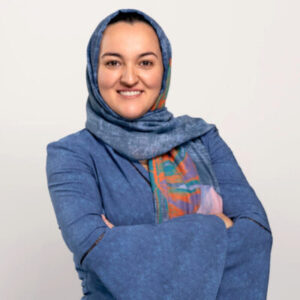Connected Minds awards second round of funding to Lassonde professors
Tags:

This story originally appeared in YFile.
Following the success of its inaugural round of research funding, Connected Minds: Neural and Machine Systems for a Healthy, Just Society has announced the recipients of its second round of seed grants.
Led by York University, in partnership with Queen’s University, Connected Minds is the largest York-led research program, with $318.4 million in funding, in part from the Canada First Research Excellence Fund. The first-of-its-kind program brings together experts from multiple disciplines to study the risks and benefits modern technology has on society – now and in the future – with a particular focus on equity-deserving groups.
The projects receiving this round of seed grants, overseen by professors at York and Queen’s, highlight the continued dedication of Connected Minds to support pioneering interdisciplinary research that bridges technology and society, driving progress toward a more inclusive, equitable and sustainable future for all. From improving digital accessibility to developing cognitive health solutions, these projects are charting bold paths forward.
Usman Khan, associate professor, Civil Engineering

The project “Machine Learning Integrated Quantitative Microbial Risk Assessment (ML-QMRA) for Health Risk-Based Water Treatment Optimization in Humanitarian Response” focuses on improving water safety in the Kyaka II refugee settlement in Uganda. Led by Professor Khan, the research co-creates a machine learning tool to optimize water treatment based on microbial risk assessments. Collaborating with the Nsamizi Training Institute of Social Development, the project uses routine water quality data to reduce the risk of waterborne illnesses, particularly for vulnerable refugee populations.
Laleh Seyyed-Kalantari, assistant professor, Electrical Engineering & Computer Science

Professor Seyyed-Kalantari leads the project “Design of Benchmarks for Fairness and Bias Evaluation and De-Biasing of Natural Language Model to Incorporate User Diversity.” This research focuses on addressing fairness issues in large language models (LLMs), like OpenAI’s ChatGPT, which often favour majority groups due to biased training data. The project aims to design domain-specific testing benchmarks to assess and score fairness across diverse dimensions such as race, gender, religion and social status. By focusing on linguistic bias, particularly in the context of sentiment analysis, the work aims to mitigate stereotypes and ensure more inclusive LLMs that better support marginalized groups, including Indigenous people, racialized communities and those with disabilities. In collaboration with the Vector Institute – a Connected Minds partner – the project seeks to advance fairness and equity in AI technologies.
Read the full story to learn more about all recipients of Connected Minds seed grants.